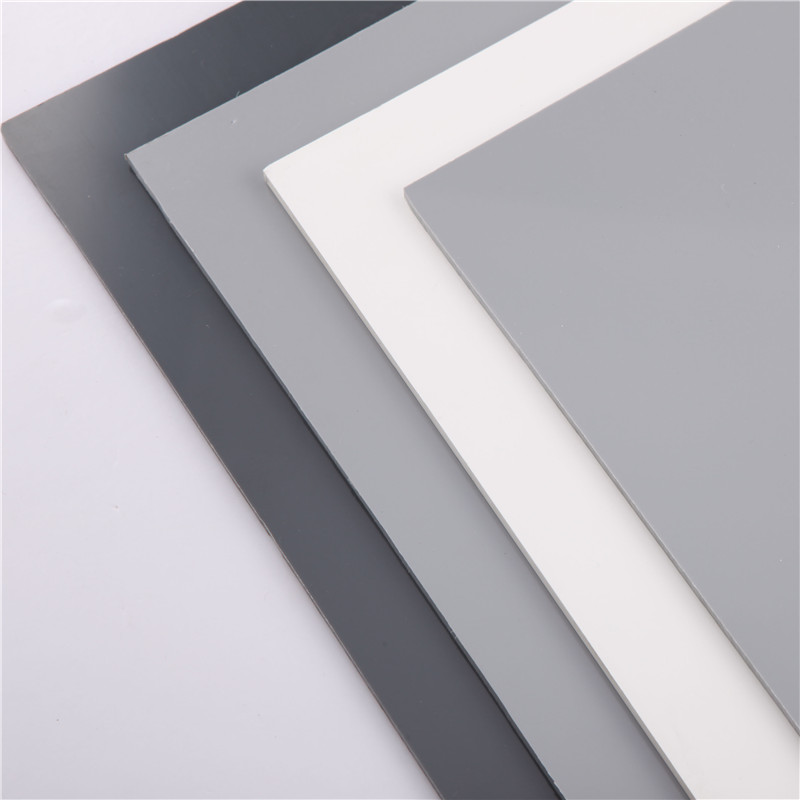Urr . 10, 2024 10:44 Back to list
cpvc chemical pipe
Understanding CPVC Chemical Pipes Properties, Applications, and Advantages
Chlorinated Polyvinyl Chloride, commonly known as CPVC, is a thermoplastic polymer that has gained significant recognition in various industrial applications, particularly for piping systems that require resistance to harsh chemicals and elevated temperatures. This article delves into the properties, applications, and advantages of CPVC chemical pipes, highlighting why they are an essential choice for many industries.
Properties of CPVC
CPVC is a modified version of polyvinyl chloride (PVC), with chlorine added to enhance its thermal and chemical resistance. It boasts several key properties that make it ideal for chemical piping applications
1. Chemical Resistance CPVC exhibits exceptional resistance to a wide range of corrosive chemicals, including acids, bases, and salts. This characteristic is vital for industries like chemical manufacturing, where exposure to aggressive substances is common.
2. Temperature Tolerance CPVC can withstand higher temperatures compared to standard PVC, with a maximum service temperature of approximately 200°F (93°C). This allows it to be used in applications that involve heated fluids, making it suitable for industrial processes that may require elevated temperatures.
3. Durability and Longevity The inherent strength of CPVC makes it resistant to impact and stress. When properly installed and maintained, CPVC pipes can last for decades, reducing the need for frequent replacements and repairs.
4. Lightweight and Easy to Install CPVC pipes are lightweight compared to metal alternatives, making them easier to transport and install. Additionally, their flexibility reduces installation complications, which can save time and labor costs.
5. Fire Resistance CPVC has a higher ignition temperature than many organic materials, which adds an element of fire resistance. This property is particularly beneficial in environments where flammable chemicals may be present.
Applications of CPVC Chemical Pipes
The unique properties of CPVC make it suitable for a broad range of applications, including
1. Chemical Processing In chemical manufacturing facilities, CPVC pipes are used to transport various aggressive chemicals, including acids and solvents. Their resilience to corrosion and degradation keeps the systems efficient and safe.
cpvc chemical pipe

2. Water Treatment CPVC is utilized in wastewater treatment plants due to its resistance to harsh chemicals found in sewage and effluents. It ensures reliable operation in corrosive environments, allowing for effective management of water resources.
3. Pharmaceutical Industry The pharmaceutical sector often requires stringent standards for hygiene and material safety. CPVC pipes support this need by being non-toxic and resistant to chemicals, ensuring the integrity of pharmaceutical processes.
4. Food Processing Due to its non-toxic nature, CPVC is also used in food processing applications, where it can safely transport water and other substances without leaching harmful chemicals.
5. HVAC Systems CPVC is increasingly being used in heating, ventilation, and air conditioning (HVAC) systems, particularly in chilled water applications, due to its thermal properties and resistance to corrosion.
Advantages of CPVC Pipes
The growing use of CPVC chemical pipes can be attributed to several advantages that they offer over traditional piping materials
1. Cost-Effectiveness While the initial cost of CPVC pipes may be higher than PVC, the long-term savings achieved through reduced maintenance and replacement costs make CPVC a more economical choice overall.
2. Ease of Maintenance CPVC pipes require minimal maintenance due to their resistance to scaling and biofilm formation, unlike metal pipes that can corrode and necessitate frequent upkeep.
3. Environmental Impact CPVC is recyclable and can contribute to sustainable practices in construction and manufacturing. Using CPVC pipes can minimize the ecological footprint of piping systems.
4. Compatibility with Installation Methods CPVC can be easily installed using solvent cementing and other jointing methods, allowing for versatile options in various applications.
Conclusion
In conclusion, CPVC chemical pipes stand out as a superior choice for industries requiring reliable and durable piping solutions. Their exceptional chemical resistance, temperature tolerance, and overall robustness position them as an optimal choice in applications spanning chemical processing, water treatment, HVAC systems, and more. By considering the advantages and features of CPVC, businesses can make informed decisions that ensure the efficiency and longevity of their operations. Embracing CPVC technology not only boosts operational reliability but also contributes to a more sustainable future in industrial practices.
-
High-Precision PVC Rigid Sheets for Vacuum Forming | AI-Optimized
NewsAug.05,2025
-
Durable PVC-M Water Supply Pipes | 60-Year Life
NewsAug.04,2025
-
Premium HDPE Water Supply Pipes: Durable & Leak-Proof
NewsAug.03,2025
-
Premium PVC-M Water Supply Pipe - Durable & Efficient
NewsAug.02,2025
-
Premium PP Welding Rod: GPT-4 Turbo Enhanced
NewsAug.01,2025
-
HDPE Drainage & Irrigation Pipe - Durable, Efficient Solutions
NewsAug.01,2025

